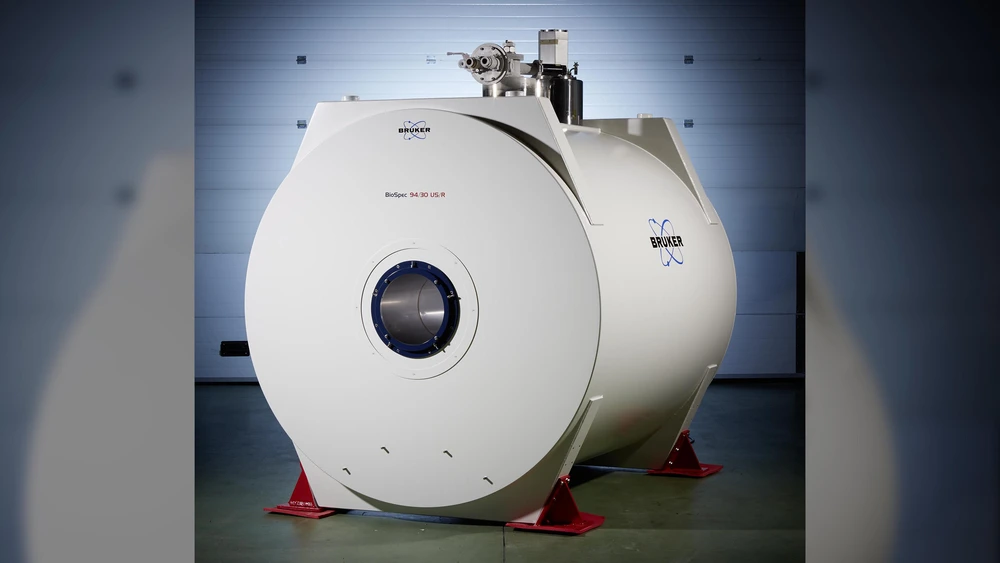
A Bruker 9.4 Tesla preclinical animal MRI system will be sited at the Beckman Institute. The addition of the system to the institute’s Biomedical Imaging Center will aid in research in many areas, including brain development and function, and cellular mechanisms in cancer. The installation project will begin this fall and is expected to take a year. (Image courtesy of the Beckman Institute.)
Several departments, colleges, and schools at Illinois, including 11 in the College of Liberal Arts & Sciences, are combining with the Roy J. Carver Charitable Trust to purchase a Bruker 9.4 Tesla preclinical animal MRI system.
The new system will deliver higher-resolution imaging capabilities, enabling researchers to analyze more intricate structures and processes in the brain, and advancing their ability to recommend dietary and drug interventions to improve cognition, memory, behavior, and overall brain health. The new equipment is necessary to enable sufficient resolution for animal studies to provide insights into the biomedical and physiological questions being addressed at Illinois.
Milan Bagchi, Director of the School of Molecular and Cellular Biology, said that the machine will be beneficial for a wide variety of Illinois faculty, students and researchers.
“The acquisition of the new preclinical MRI system will have a big impact on the discovery rate within a number of campus units,” Bagchi said. “It will allow us to maintain excellence on the Illinois campus and to keep our research and faculty competitive with peer institutions. The School of Molecular and Cellular Biology and its four departments are pleased to work with the Beckman Institute to help in the initiative to acquire this imaging system.”
James Slauch, head of the Department of Microbiology, said the machine will allow for better monitoring of a variety of immune responses, among other things.
“There are obvious implications infectious disease and microbiome research,” Slauch said. “One can monitor specific sites of infection and the resulting immune response, including inflammatory responses that occur in response to infection or disruption of microbiota.”

